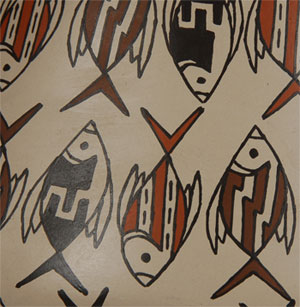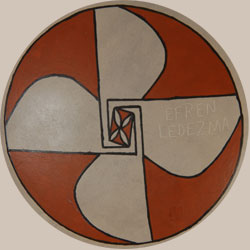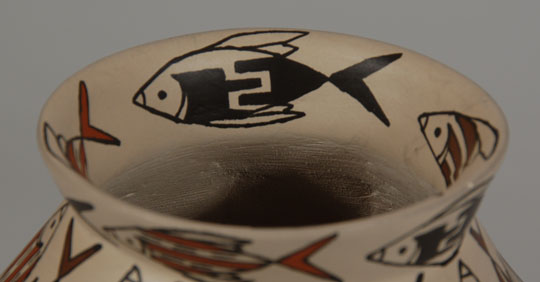Mata Ortiz, Mexico, Polychrome Jar [SOLD]
+ Add to my watchlist Forward to Friend
- Category: Modern
- Origin: Mata Ortiz, Chihuahua, Mexico
- Medium: clay, pigments
- Size: 8” tall x 8” diameter
- Item # C3251N SOLD

The predecessor for today's contemporary Mata Ortiz pottery is the prehistoric Casas Grandes pottery of Mexico. The credit for its revival is due solely to a Mata Ortiz native named Juan Quezada. His village is only about 15 miles from the ancient village where he found potsherds of the prehistoric wares and only about 70 miles from New Mexico.

Quezada collected these ancient potsherds, studied them and decided he could replicate those wares from the prehistoric era. After much studying and experimenting, Quezada did exactly that. Once mastered, he taught neighbors and friends the techniques and a new industry was born.
This jar was made by one of Quezada's village residents, Efren Ledezma. It is extremely thin-walled as those by Acoma Pueblo potters. It is beautifully decorated with a complete cover of fish from top to bottom, some swimming north and others swimming south. The potter's signature is etched into the clay on the underside of the jar. Unlike pueblo pottery of New Mexico, the Mata Ortiz potters form a rounded bottom on their wares.
Condition: original condition
Provenance: from the collection of Katherine H. Rust

- Category: Modern
- Origin: Mata Ortiz, Chihuahua, Mexico
- Medium: clay, pigments
- Size: 8” tall x 8” diameter
- Item # C3251N SOLD



